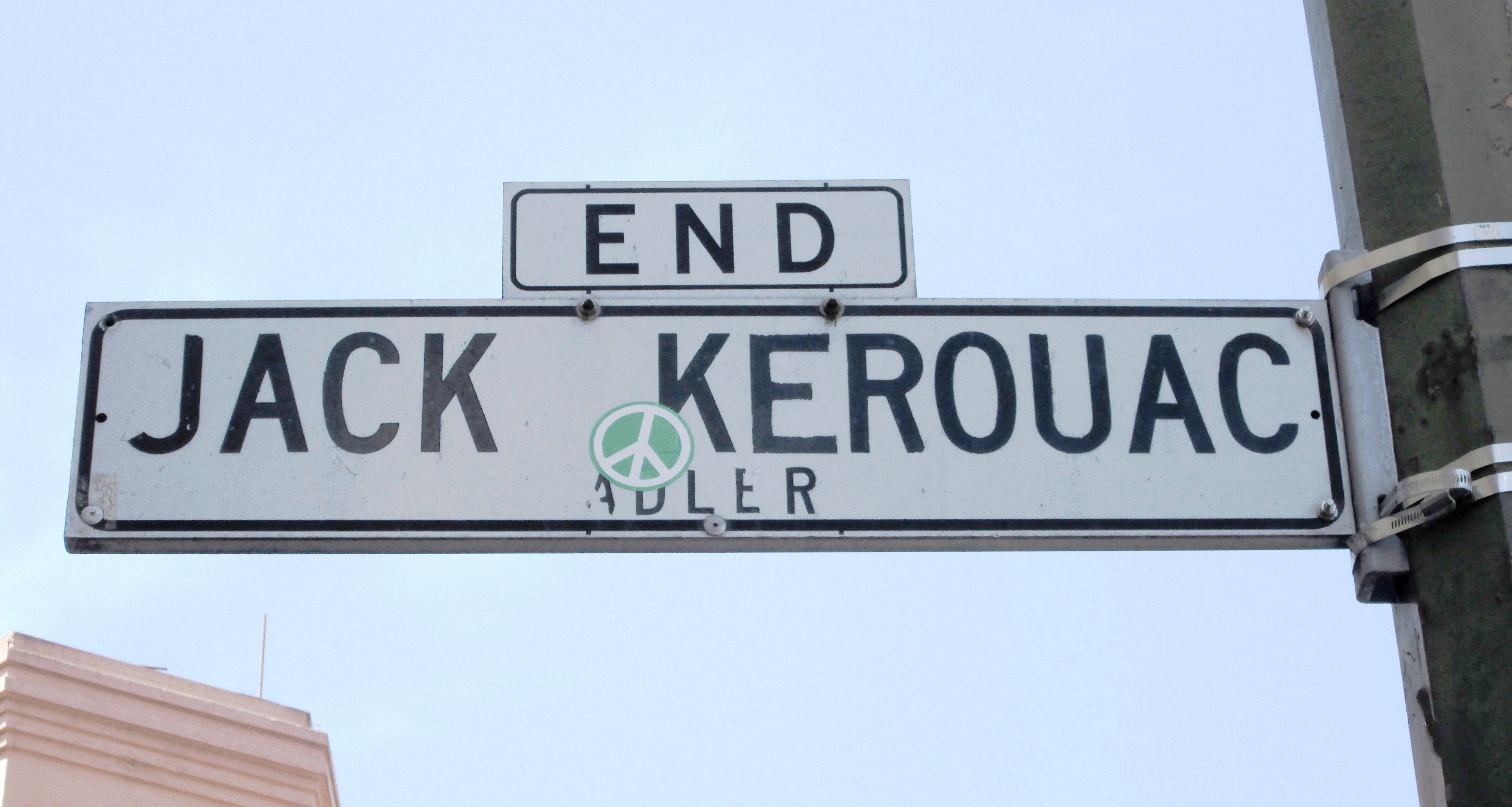 |
| Jack Kerouac Alley, San Francisco. Photo by Beyond My Ken [CC BY-SA 4.0] via Wikimedia. |
 Doctor Sax by Jack Kerouac
Doctor Sax by Jack KerouacMy rating: 3 of 5 stars
I finished this book and thought to myself, "What the hell was that about?" I still don't know. It is poetic in the sense that it has a distinct rhythm, not as hectic as the rhythm of On the Road, but a rhythm nonetheless. I read this book over a few days, and my dreams were haunted by visions of my childhood. Not that my childhood compares with Kerouac's, in many ways he seemed to have an enjoyable childhood with many friends. But his childhood recollections of creativity and games and imagination allow one to recall a time long past. As I read the book, I wanted it to finish as soon as possible. I couldn't stop reading it, but I wanted it to end. When it ended with:
Written in Mexico City,Tenochtitlan,1952Ancient Capital of Azteca
I was convinced Kerouac was completely off his nut when he wrote this work. So I looked to The Guardian and The New York Times to see what it was all about. In The Guardian, Lettie Ransley suggests that Kerouac was using what he:
...came to refer to as his "spontaneous prose" method: incantatory and insistent in its rhythms...
One can certainly feel the rhythm, much like an ebbing tide. But David Dempsey (1959) of the New York Times was closer to how I feel about the work:
"Dr. Sax" is not only bad Kerouac; it is a bad book. Much of it is in bad taste, and much more is meaningless. It runs the gamut from the incoherent to the incredible, a mishmash of avant-gardism (unreadable), autobiography (seemingly Kerouac's) and fantasy (largely psychopathic).
While I am reluctant to say it was bad, I am none the wiser as to why one might read it, other than for historical study purposes. Dempsey tells me that Truman Capote said of Dr Sax:
...this isn't writing, it's just typing.
Capote might be close to the truth, but I find it difficult to accept that the little I have read of Finnegan's Wake is somehow art while Doctor Sax is something else. So while I must appreciate it for its historical merit, and I while I have not lost anything from reading it (it has forced me to think and to recollect forgotten moments from childhood), I find it hard to say this is a good book, and I would hesitate to recommend it to anyone other than the student of literature. I enjoyed Maggie Cassidy and On the Road, but I have struggled to commit to Kerouac's Wake Up. All I can say is that after this book, I think Jack and I need a little time apart.
 Donate
Donate




